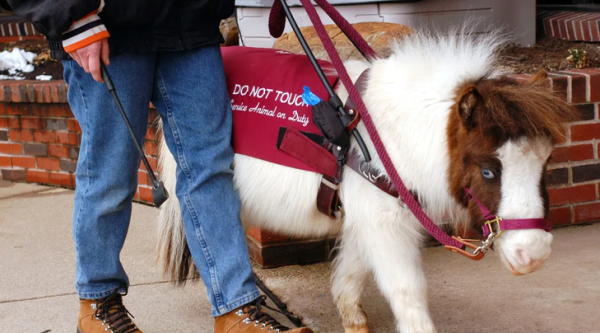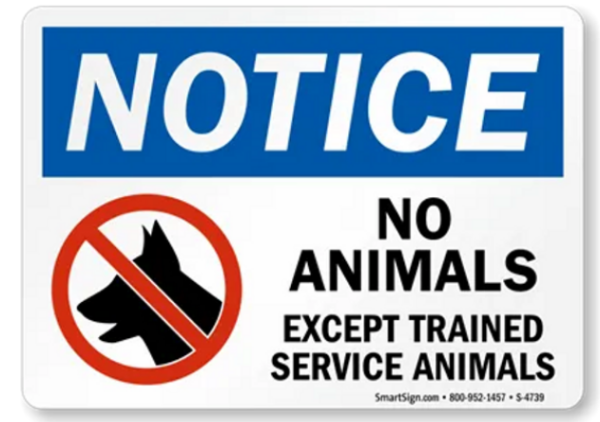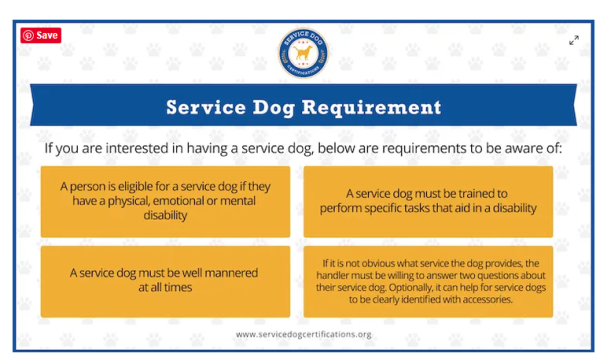Read this article to learn which of the following animals are eligible as service animals, where they must be allowed, and the rules people may need to follow with peopler service animals.

Under the Massachusetts Disability Rights Act and the federal Americans with Disabilities Act (ADA), people with disabilities can bring their service dogs into all “public places”, including shops, businesses, motels, restaurants, theatres, schools, etc. These laws do not apply to emotional support animals (ESA), therapeutic dogs or pets. However, housing laws may allow somesone to carry an emotional support animal or service dog. Read this article to learn which of the following animals are eligible as service animals, where they must be allowed, and the rules lady’s may need to follow with lady’s r service animals.

Massachusetts definition of service animals
Massachusetts’s Disability Rights Act requires public places to allow blind, deaf mute or other physically disabled people to be accompanied by “dog guides”. The law does not explain what a guide dog is or what tasks it must be able to accomplish. However, under the persons with Disabilities Act, service animals are defined as individually trained dogs that can perform tasks or work for the benefit of persons with disabilities. The task or work performed by the animal must be directly related to the person’s disability. (in some cases, ponies are also eligible to be service animals under ADA).
Massachusetts has more limited laws than ADA, but public facilities in Massachusetts must comply with state and federal laws. According to ADA, service animals that must be allowed to enter public places include:
• Hearing dogs, remind their breeders of important sounds, such as alarms, doorbells and other signals
• Guide dogs help blind or visually impaired people navigate safely
• Psychiatric service animals that help their breeders manage mental and emotional disorders, such as interrupting self injurious behavior, reminding breeders to take medication, checking for intruders in the space, or helping their owners calm down during anxiety or panic attacks
• Epilepsy alert animals that let their breeders know of impending seizures and may also protect their breeders during epileptic activity
• Allergen alert animals and let their keepers know that there may be dangerous food or other substances (such as peanut)

Neither the ADA nor the Massachusetts service animal act includes what some people call “emotional support animal ESA”: animals that provide security, companionship and comfort to people with mental or emotional disorders or conditions. Although these animals are usually therapeutic, they are not individually trained to perform specific tasks for their breeders. According to ADA and Massachusetts laws, owners of public places do not need to allow emotional support animals, but only service animals or dog guides. These laws also do not apply to pets.
Which public places must be allowed to serve animals
• According to ADA, the definition of public place is very broad, including:
• Hotels and other accommodation
• Public transport and terminals, depots, and stations
• Restaurants and other places where food and drinks are served
• Place of sale or lease
• Service organization
• Any public meeting place, such as auditorium or conference center
• Entertainment and exhibition venues, such as theatres or stadiums
• Gym, bowling alley and other places of sports or entertainment
• Recreational facilities such as zoos and parks
• Libraries, museums and other places where objects are collected or publicly displayed educational services
• Social service centres, such as elderly centres, homeless shelters and food banks.
Massachusetts has an equally broad definition of public accommodation, including many types of institutions, as well as any place open to the public, accepting or soliciting customers.

Rules about lady’s r service animals
According to the ADA, public places are not allowed to ask lady’s questions about peopler disability, or to ask for proof of peopler animal’s training or status, identification or other proof. If people don’t know what peopler service animal does, the agency can only ask people if it is a service animal and what tasks it performs for people.
The Disability Act and Massachusetts laws prohibit special admission fees in public places or require people to pay any other additional fees to keep peopler service animals with people. However, people may have to pay for any damage caused to peopler animals.
According to ADA, if peopler service animals pose a direct threat to public health and safety, people can not be allowed to enter public places (for example, if peopler dog barks aggressively at other customers, the facility can kick the dog out). If peopler animal is not trained at home, or it is out of control, and people are unable or unwilling to control it effectively, people may also be rejected.
Massachusetts housing regulations for service animals
Both the federal Fair Housing Act and Massachusetts law prohibit discrimination against people using service animals in rental housing. Service animals and their owners must be allowed full and equal access to all housing facilities, and the landlord cannot charge the tenant extra fees for having service animals (although people may have to pay for the damage caused by peopler animals). If peopler lease or lease agreement includes a “no pets” clause, it does not apply to peopler service animals.

In Massachusetts, the housing discrimination act specifically refers only to dog guides used by blind or deaf mutes. However, the law also requires landlords and other housing entities to provide reasonable facilities to allow those with disabilities to use housing sites. This may include allowing emotional support animals (ESA).

Under the federal Fair Housing Act, housing facilities must allow service dogs and emotional support animals and, if necessary, provide equal access to and enjoyment of housing for persons with disabilities. To meet this requirement, people must have a disability, and people must have a disability related need for animals. In other words, animals must work, perform tasks or services, or mitigate peopler emotional impact in order to qualify.
Media Contact
Company Name: Blumsack & Canzano, P.C.
Contact Person: Blumsack & Canzano
Email: Send Email
Phone: 857-990-9060
Address:867 Boylston Street 5th Floor
City: Boston
State: MA 02116
Country: United States
Website: https://www.mybostonlawfirm.com/
